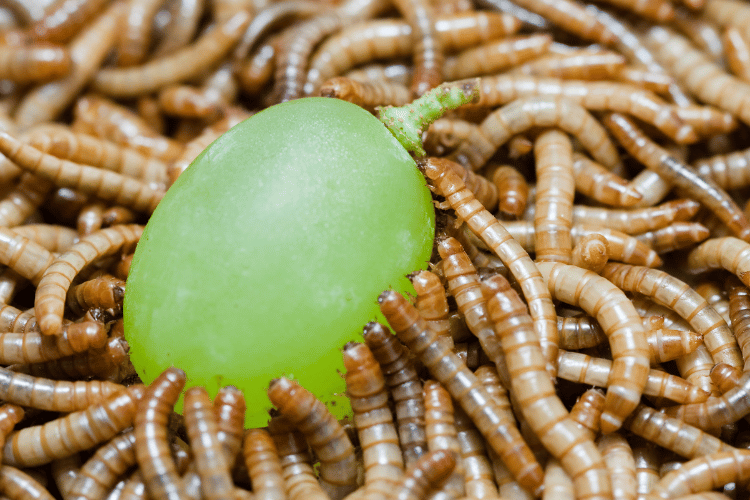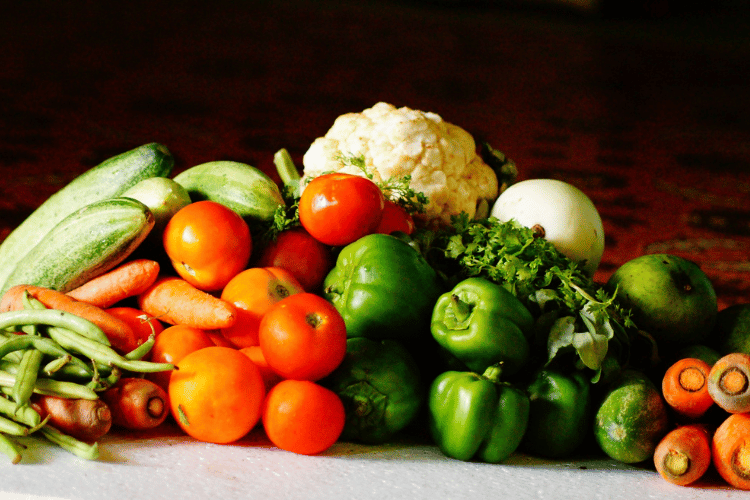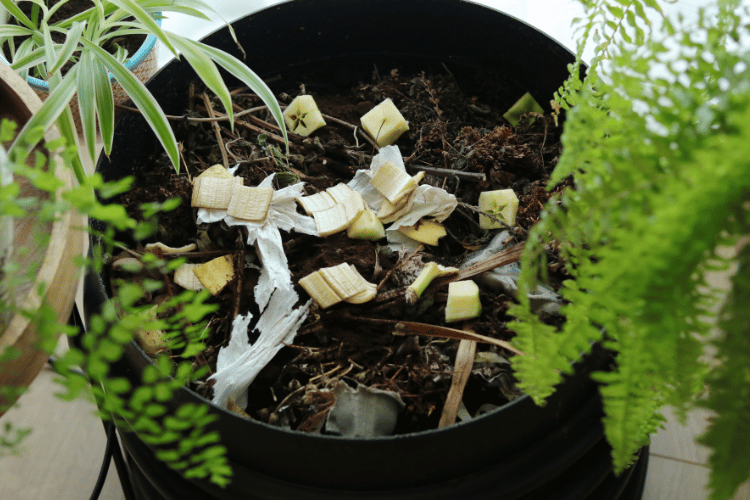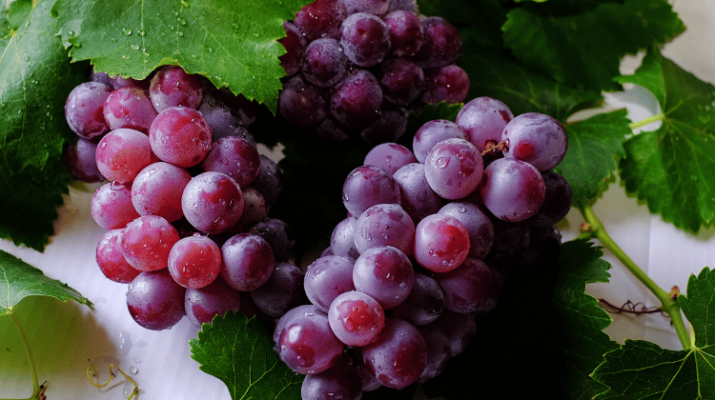Vermicomposting is like giving your kitchen scraps a second chance at life. Yet, as we toss in our food waste, we need to make sure we’re taking care of our precious worms. After all, they do all the hard work. This begs the question: can worms eat grapes?
The answer is yes but with a twist! Small grapes are a worm’s delight, yet too many could upset their cozy home.
Do you want to find out more? Let’s delve into the world of organic waste, discover their favorite foods, and ensure our vermicomposting adventure is as fruitful as can be!
Can Worms Eat Grapes?

Yes, worms can certainly enjoy a delicious grape or two! In fact, small grapes can be a delightful treat for your composting worms.
However, as with any good thing, moderation is key. While worms can handle small quantities of grapes without a problem, large amounts may have some downsides.
The reason is that grapes, especially in large quantities, tend to be acidic. This acidity can pose challenges to your worm bin.
The acid content has the potential to disrupt the balance of your worm bedding and, if not managed properly, could harm your worm population.
Additionally, grapes might have detrimental effects on other essential microorganisms in your compost bin. The acidity can also compromise the quality of the compost liquid, impacting its effectiveness in nourishing your plants.
Best Worm Food to Use in Your Compost Bin
The composting virtuosos will gladly consume anything that you put in the bin. Yet, you want to ensure a thriving worm population and a reduced carbon footprint. Accordingly, here are some of the foods you should offer your composting worms:
Leafy Greens
Leafy greens are like a nutritional powerhouse for your composting worms. Packed with essential nutrients, these greens offer a wholesome treat while leaving minimal waste behind. What’s even better? They play well with your worm bedding, avoiding any potential harm.
Vegetables contribute significantly to the well-being of composting worms. Not only do they enhance the nutrient content of the compost, but they also help in the production of nutrient-rich compost liquid, a liquid gold for your plants.

Fruits
Worms are true fruit enthusiasts! Whether it’s the sweet crunch of apple peels or the citrusy zing of orange rinds, they’ll devour every part of the fruit you throw their way. Beyond the delightful variety in their diet, fruits play a crucial role in enhancing the overall well-being of your worm population.
What makes fruits even more appealing is their compatibility with worm towers. Feeding your worms fruits not only introduces diversity to their menu but also contributes to the richness of your compost, making for a thriving worm community!
Kitchen Waste
There’s a reason worms are the hard workers of the composting world. These hungry creatures will feed on just about anything you put in the worm bin.
Well, the beauty of vermicomposting lies in the transformation of your kitchen waste into a potent elixir for your garden.
From tea bags and coffee grounds to egg cartons and shells, worms happily feast on a diverse menu. If you have unwanted leftovers, or you just want to reduce your kitchen waste, worms will do the job for you.
So, next time you’re contemplating what to toss into your compost bin, know that your worms are up for the challenge and turn your kitchen scraps into garden gold!
What Not to Feed Worms in Your Compost Bin
Composting is a delicate balance, and certain foods can disrupt the harmonious environment of your worm bin. These foods include:
Acidic Food
High acidity, found in citrus fruits and onions, can be detrimental to your worm population and affect the composting process. A telltale sign of an overly acidic worm farm is a distinct vinegar-like smell.
To keep your compost thriving, limit acidic inputs like citrus peels. Strike a balance in your composting kitchen, steering clear of too much acidic food and ensuring a healthy environment for your composting worms.
Dairy
Beware of dairy’s impact on your composting haven! While worms may be versatile eaters, dairy products pose challenges.
Not only does dairy encourage bacterial growth, but it can also attract unwelcome guests like pests and mites. The repercussions extend to your worm farm’s health, emitting pungent odors and potentially causing rot.
Avoiding dairy ensures a fresh and thriving compost, preventing a domino effect of spoilage when other foods are introduced.
Large Food

Think small when feeding your worm buddies! Large chunks take their sweet time to compost, impacting both the quantity and quality of the composting liquid.
Instead, encourage efficient composting by offering bite-sized pieces, like grapes!
Additionally, larger chunks might clog the compost liquid drainage holes, disrupting the composting process.
Frequently Asked Questions
How often should you feed compost worms?
Once a week is the sweet spot! While compost worms are resilient and can go without food for longer, they also won’t compost without much food. Instead of feeding them whenever you get the chance, gather your kitchen scraps and treat your worms to a banquet at once.
How much food should you add to the compost bin?
Balance is key! Worms can devour between half their weight to their full weight in food. Adjust the quantity as your worm population grows.
Wrapping Up
Can worms eat grapes? The answer is a delightful yes! If you have any leftover fruit, including grapes, worms will happily devour it. However, your worms’ diet should contain a variety of foods. Feeding them a lot of grapes might acidify their environment, harming your precious worm population.
From leafy greens to a wide variety of kitchen scraps, our composting allies thrive on organic waste. Yet, in this harmonious dance with our wormy friends, it’s crucial to avoid acidic foods and dairy.
Let’s celebrate the magic of turning food waste into nutrient-rich compost, ensuring a bountiful and eco-conscious future for both our gardens and the planet. Cheers to the fruitful symphony of vermicomposting!

